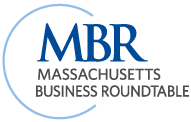Conversations with Business Leaders: Navigating the Challenges Impacting Growth in Massachusetts
Over the past month, the Roundtable, in partnership with McKinsey & Co., conducted a series of one-on-one interviews with Roundtable members to supplement our Annual 2024 MBR Talent and Competitiveness Survey. These conversations have allowed us to explore some of the challenges businesses in the state and across different sectors are facing and how we can better partner with state leaders to address them.
While the final survey results will not be released until June, here are a few initial reflections on both the obstacles and the potential opportunities impacting talent in Massachusetts.
Talent Retention
Employers continue to struggle to attract and retain talent. Our survey data is showing that the high cost of living, coupled with the lack of reliable transportation, is pushing employees outside of Massachusetts. As one interviewee said: “We invest a lot in training [employees], and, you know, it’s a challenge to keep them here.” Another interviewee stated that even with competitive salaries, the high cost of living in Massachusetts remains a significant drawback.
Adaptation and Innovation
In the face of these challenges, companies are adapting, tapping into untapped talent pools – oftentimes outside of Massachusetts – and embracing flexibility. “COVID has impacted our strategy around talent acquisition. I think the whole staffing model [has] evolved since COVID [and] there’s certainly a preference by some to have flexibility,” says one interviewee. Collectively, the interview participants emphasized that remote and hybrid work have helped to widen the talent pool.
While remote work can provide benefits in terms of flexibility and work-life balance, it also presents challenges in building company culture and fostering a sense of community. Many interview participants emphasized the importance of in-person interactions for instilling company culture and creating a sense of belonging among employees. One interviewee stated that the lack of employee engagement with the company culture makes employees “less sticky” or less likely to stay at the company. One company’s approach to this is to let managers identify the unique needs of their team members and provide opportunities for growth and development, while other companies lean on creative incentives to get employees in the office, such as social gatherings around meals and required networking events.
The Role of Technology and AI
Despite apprehension regarding job displacement and the uncertainty around privacy, there is a consensus on the transformative potential of AI and the importance of upskilling employees to keep up with the changing demands of industry. As stated by an interviewee, “The skills of yesterday are very different from the skills of tomorrow…we have to upskill our people to now be the thought generators.”
Some companies stated that AI and emerging technologies are being explored both for enhancing business processes and improving talent attraction and retention strategies. “We’re… looking at [AI as] how do we… take the mundane off of the plates of our staff, not because we want to reduce staff, but [because] we want them to be using their time for higher and better means.” Overall, many interviewed acknowledged that while technology can make certain tasks more efficient, there will still be a need for human talent.
These interviews and themes highlighted above capture some of the trends we are hearing from members and are very much aligned with the data collected from this year’s Talent and Competitiveness Survey. The Roundtable will publish the results of its survey later this spring. Thank you to all the Roundtable members who participated in these interviews!
RECENT POSTS
- No Borders: Climate Change, A Call to Action for All
- Celebrating Diversity
- A Talent Agenda to Drive Massachusetts Competitiveness
- Taking Aim at the State’s Competitiveness
- Bentley and Roundtable Gather Executives To Discuss How Business Impacts Society
- Quarterly Policy Roundup: Q2 2024
- What We Learned on Our Trip to D.C.
- Conversations with Business Leaders: Navigating the Challenges Impacting Growth in Massachusetts
- Quarterly Policy Roundup: Q1 2024
- Black History Month: Reflections from Roundtable Staff
